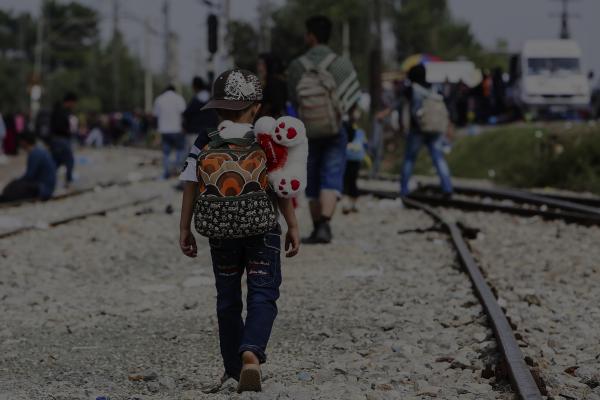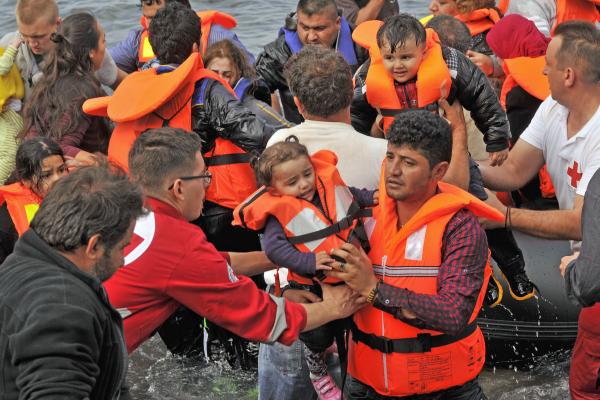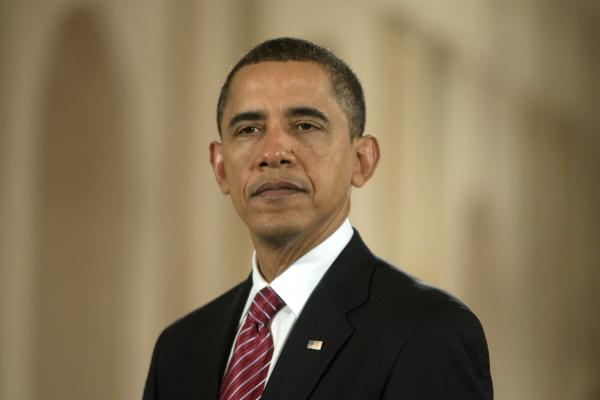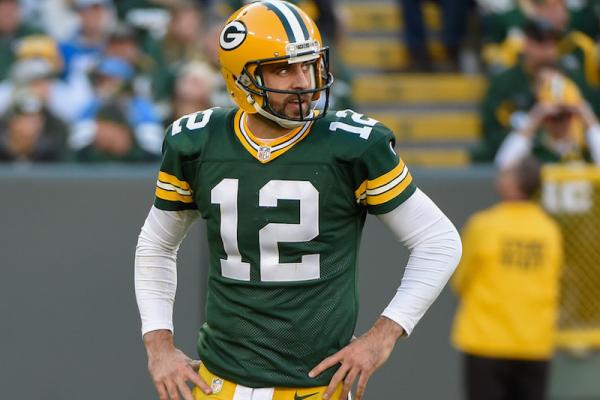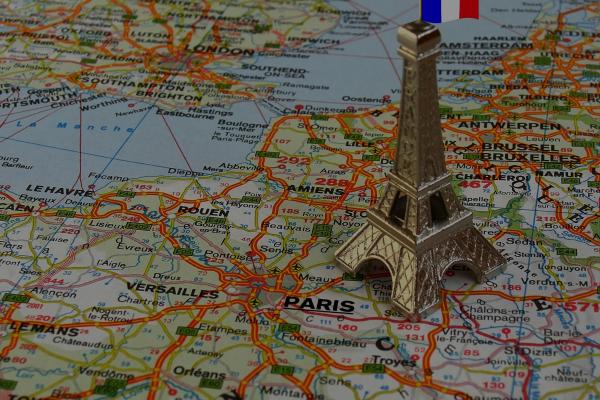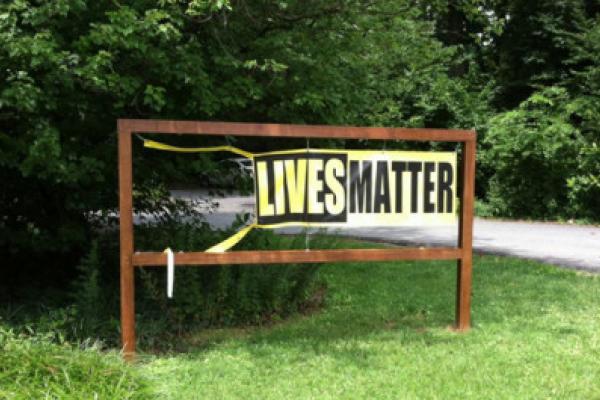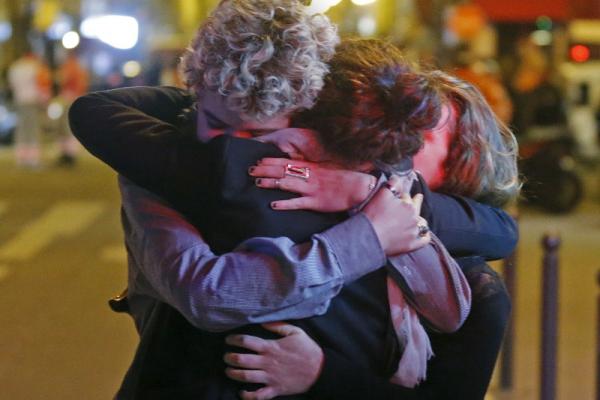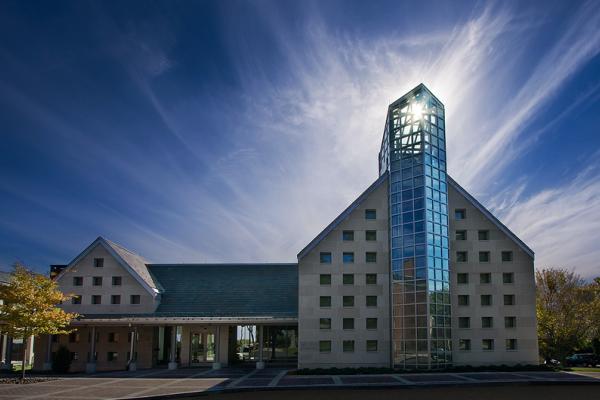As we stand together around the world, shocked and mourning with the thousands who lost their fathers, mothers, sisters, brothers, relatives, and friends in France, Lebanon, and Iraq, one thing bothers me most about the narrative around the terrorist attacks in Paris.
From the moment first reports started streaming in from France, even when the details surrounding the tragedy were very scarce, mainstream media pundits were far too eager to bring Syrian refugees into the story of the Paris massacre. They planted the seeds of doubt into the minds of millions that somehow Syrian refugees shared responsibility for the massacre.
Two months ago I worked on the last several miles of the refugee trail from Syria, Iraq, and Afghanistan to the Croatian border. I helped drive nearly 100 refugees to the border, and distributed food, water, clothes, and shoes to at least 2,000 more.
I still remember the stories of some who did not hesitate to tell my team why they left Syria or Iraq.
Whether you like it or not, Christians are called to help the world’s most abused, hurt, helpless, exploited, and destitute.
If you’re a follower of Christ passionate about social justice, of if you attend a church that claims to be enthusiastic about global missions, or if you’re part of a Christian organization that facilitates ministry, you’ve been handed a golden opportunity — the ability to minister to millions of people in desperate need.
This is a chance to be radically countercultural — to glorify Christ through selfless sacrifice, hospitality, and love. Being a Christ-follower isn’t easy, and it will require hard work, but it’s worth it.
To leave the trafficked sex industry is to encounter many barriers. Among those is the need for employment opportunities and the opportunity to learn a trade while gaining skills to earn an independent income.
Consider this: A woman leaves a trafficker, through his arrest or her own personal escape. This trafficker created total dependence — someone who, amidst abuse and exploitation, provided for her. She usually had no control of this money, and gave over anything she made for his earnings. Her needs are met — but she is completely dependent on him for survival.
Then she is separated from her trafficker, and she has nothing: No income, usually a limited education, and at times minimal job skills to report on a resume. Her survival reflects her strengths and resources — but how does she capture resilience for prospective employers? What does she do when she carries a criminal record history?
One survivor described this experience to me, saying, “I look horrible on paper.”
"The people who are fleeing Syria are the most harmed by terrorism, they are the most vulnerable as a consequence of civil war and strife. They are parents, they are children, they are orphans. And it is very important — and I was glad to see that this was affirmed again and again by the G20 — that we do not close our hearts to these victims of such violence and somehow start equating the issue of refugees with the issue of terrorism.
"When Pope Francis came to visit the United States, and gave a speech before Congress, he didn’t just speak about Christians who were being persecuted. He didn’t call on Catholic parishes just to admit to those who were of the same religious faith. He said, protect people who are vulnerable."
Teams around the NFL paid tribute to those who lost their lives in the terrorist attacks in France last week with a moment of silence before Sunday’s games.
At Lambeau Field, before the Green Bay Packers lost to the Detroit Lions 18-16, a fan shouted out a slur against Muslims during the moment of silence.
That did not sit well with Green Bay quarterback Aaron Rodgers, who called out the fan in his postgame comments.
When I was eighteen years old I knew that I knew everything there was to know, especially in regards to the “us” and the “them” of the world. Eighteen-year-old me knew that being gay was a sin and that LGBTQ people were not called to leadership in the church (and my conservative Christian college did nothing but reinforce these beliefs). But four short years later I found myself on a hill across from my alma mater, standing in solidarity with dozens of LGBTQ young adults and allies, advocating for change in Christian universities with policies that discriminated against LGBTQ people.
How did I get from “there” to “here”? How did my view of “us” and “them” shift so radically?
Just like you, I was horrified when I learned of the terror attacks in Paris on Nov. 13. The scale, precision, and barbarity of these crimes are hard to fathom.
My first reaction was sadness for the victims and a desire for peace. My second was a sense of mild panic. If they can do this in Paris, they can certainly do it in my city!
My third reaction, one I’m not particularly proud of: I thought about how much I’d like to see the people responsible for these acts hunted down and destroyed.
I’ve been thinking a lot about 9/11 lately. I remember the way that we as a nation went through a similar three-step process. We went from shock and sympathy to fear and paranoia, and finally to the conviction that we must annihilate those who attacked us.
It all happened so quickly.
Banners posted at predominantly white churches across the country in support of the “Black Lives Matter” movement have been vandalized — some of them more than once.
Since the Unitarian Universalist Association passed a resolution last summer affirming the movement, 17 of more than 50 congregations that have posted signs have seen them vandalized or stolen.
The Rev. Neal Anderson, senior minister of the Unitarian Universalist Fellowship of Northern Nevada in Reno, said his largely white congregation posted its fourth sign after the third one was stolen on Halloween weekend. The first banner was vandalized in August.
“For me the vandalism was sort of this physical and visible sign of white supremacy,” he said of the first act of vandalism.
Pope Francis raised the specter of a World War III “in pieces,” Muslims issued statements of condemnation, while evangelical Christians in America debated whether to speak of a “war with Islam.”
These were some of the responses by religious leaders around the world on Nov. 14 to the series of attacks overnight in Paris which left more than 120 people dead.
“This is not human,” Francis said phone call to an Italian Catholic television station. Asked by the interviewer if it was part of a “Third World War in pieces,” he responded: “This is a piece. There is no justification for such things.”
America’s oldest graduate seminary is once again blazing a trail for other mainline Protestant institutions to follow. But this time it’s a path many would rather not travel.
On Nov. 12, Andover Newton Theological School announced plans to relocate and sell its 20-acre campus in Newton, Mass. The move will be part of “a bold new direction” for the 208-year-old school as it struggles with big deficits.
“God is doing something new in this time,” said Andover Newton President Martin Copenhaver.
“We have to figure out what it is and get with the program.”
